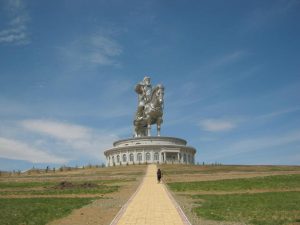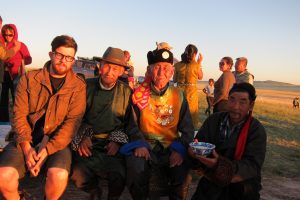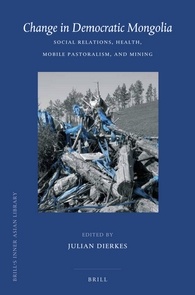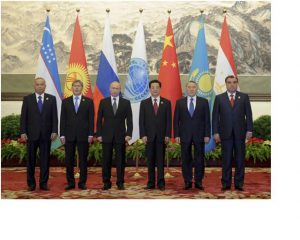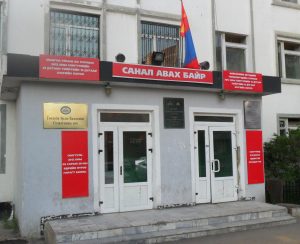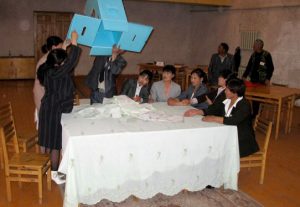Tertiary Education in Mongolia: Tackling Mongolia’s Labor Deficit Problem
The Mongolian economy is booming and continues to enjoy an extremely high GDP growth rate. Economic opportunities for citizens in urban and rural settings abound. Mining is a major portion of the economy, with the massive Oyu Tolgoi mining project accounting for a third of Mongolia’s GDP. While World Bank development projects focus on infrastructure development, economic governance and institutional strengthening of the mining sector, the demand for a sufficiently educated Mongolian workforce remains unmet.
Cultural Objects and Tradition in Post-Socialist Mongolia
Since the end of Mongolia’s socialist period (1921-1990) the country has been experiencing a “cultural revival”. Post-socialist nationalism permeates private and public life, and deeply colours the way “traditional” culture is imagined. Once religious prohibitions were lifted in the early 1990s, newly constructed Buddhist temples and their monastic populations emerged as sources of authority. Lams (monks) performed rituals to protect Mongolians and the Mongolian state from the uncertainties of the new democratic and capitalist era as much as provide spiritual benefits.
Change in Democratic Mongolia (Video Interview with Dr. Julian Dierkes)
Memo #181 – In this interview, Dr. Julian Dierkes introduces the edited volume “Change in Democratic Mongolia: Social Relations, Health, Mobile Pastoralism, and Mining.” By tracing rapid change in Mongolia in four broad fields of contemporary social relations, the chapters in this volume will elucidate the state of contemporary Mongolia and help us understand Mongolia ten or 20 years from now.
China and the SCO – Influence and ‘Soft Power’
Memo #169 – The 12th annual meeting of the Shanghai Cooperation Organization (SCO) which includes China, Russia, and four Central Asian states, concluded in Beijing on June 7th. Growing Chinese influence and “soft power,” emphasizing persuasion over force, were much on display.
Women Part of a Major Turnover in Mongolian Parliament
Memo #168 – Mongolians voted in a parliamentary election on June 28, 2012 according to a new electoral system that mixed majoritarian and proportional representation. It also included a new quota requirement for women candidates.
Mongolian Election: Bumpy Road, but Heading in the Right Direction
Memo #161 – Elections are milestones in democratic development. With the closing of nominations on June 6, 2012, the campaign for the Mongolian parliamentary election officially opens. Observers seem pessimistic about Asia’s only post-socialist democracy. But the upcoming election promises to be more carefully organized and transparent, and public discussions of corruption will strengthen democracy.
Why No Anti-Mining Party in Mongolia? Why No Pro-Mining Movement?
Memo #106 – Next week, German Chancellor Angela Merkel is scheduled to address the Mongolian parliament. Her visit will come during a tumultuous period as Mongolian politicians prepare for parliamentary elections in summer 2012. Recently, 20 MPs petitioned the government to revisit the 2009 Investment Agreement signed with Ivanhoe Mines and Rio Tinto for the giant Oyu Tolgoi (OT) gold and copper project. The petition sent shares and Mongolia’s credibility as a natural resource investment destination momentarily tumbling. No enduring anti-mining coalition is behind this petition, nor has a pro-mining, single-issue party emerged.
Livelihood Clashes in Inner Mongolia and Mongolia
Memo #87 – The Southern Mongolia Human Rights Information Center, a U.S.-based group, has been reporting on protests in cities along the central-northeastern border between the Inner Mongolia Autonomous Region (IMAR) in China and Mongolia. These reports raise the spectre of ethnic conflict between Han Chinese and Mongolians. In fact, the origins of conflict are less ethnic in nature and more of a clash between traditional pastoral livelihoods and mining operations.
Current Convulsions in Mongolia’s Political Party Landscape
Memo #52 – Mongolia is Asia’s only post-socialist democracy and one of few Asian democracies. The political system of Mongolian democracy, like anywhere else, is a working compromise. The renaming and subsequent split of the governing Mongolian People’s Party, the merger of the Civic Will Party with the Green Party, and current discussions about changes in electoral laws suggest a maturing of the party system.
Монголын улс төрийн намууд задрал, нэгдлээр Цагаан сараа угтлаа
Memo #52 – Монгол улс нь Азийн цөөхөн ардчилалын нэг, тэр дундаа ардчилалд шилжсэн Азийн цорын ганц социалист оронд тооцогдог. Тус улсын ардчилалын тогцолцоо нь бусдын адилаар улс төрийн хүчнүүдийн харилцан зөвшилцөл дээр тулгуурладаг. Засгийн эрх барьж буй Монгол Ардын Намын нэрээ сольж, улмаар задралтай золгож, Иргэний Зориг Нам болон Ногоон Нам нэгдэж, сонгуулийн хуулийг өөрчлөх талаар ярилцаж байгаа нь намуудын төлөвшил ид дундаа өрнөж байгаагийн илэрхийлэл гэлтэй.
